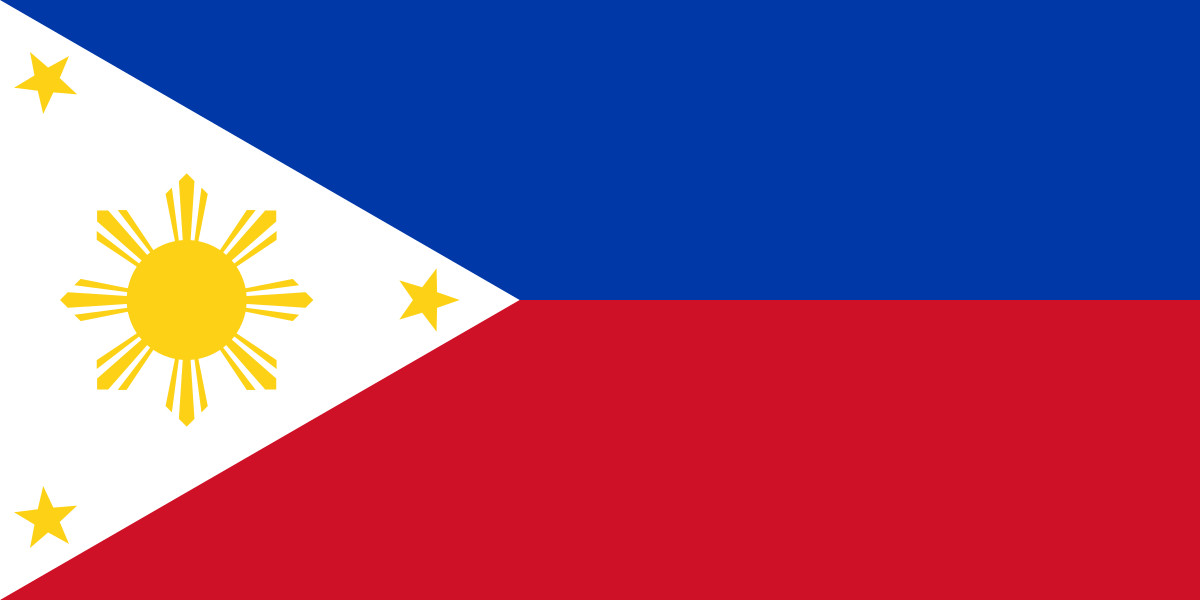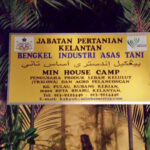Are you planning a trip to the Philippines and wondering about the rules and guidelines that shape the tourism industry? SIXT.VN is here to provide you with a comprehensive understanding of tourism policy in the Philippines, ensuring your travel experience is smooth and enjoyable. Knowing these policies helps you navigate the Philippines’ travel landscape with confidence. Let’s explore the key aspects of the Philippines tourism policy! Discover seamless travel experiences with SIXT.VN’s diverse services.
1. What is the Tourism Act of 2009 (Republic Act No. 9593)?
The Tourism Act of 2009, also known as Republic Act No. 9593, is the main law that shapes the tourism industry in the Philippines. It aims to create a tourism sector that is competitive, responsible, and sustainable. According to the Department of Tourism (DOT), this act is designed to promote inclusive growth by ensuring that local communities, especially those in rural areas, benefit from tourism activities.
The key features of this act include:
- Department of Tourism (DOT): The DOT is responsible for planning, implementing, and supervising tourism development efforts throughout the country.
- Tourism Infrastructure and Enterprise Zone Authority (TIEZA): TIEZA manages Tourism Enterprise Zones (TEZs) and provides incentives to tourism-related businesses to encourage investment and growth.
- Sustainable Development: The act promotes environmentally sustainable practices to protect the Philippines’ natural resources and cultural heritage.
 Philippines Flag
Philippines Flag
1.1 How Does the Tourism Act Impact Travelers?
For travelers, the Tourism Act ensures that tourism services meet certain standards of quality and sustainability. According to a 2022 report by the Tourism Promotions Board Philippines, this act helps maintain the Philippines reputation as a top travel destination by ensuring the protection of tourist rights and promoting responsible tourism practices.
1.2 What are Tourism Enterprise Zones (TEZs)?
Tourism Enterprise Zones (TEZs) are specific areas designated by TIEZA for tourism development. According to TIEZA’s official website, these zones receive special incentives, such as tax breaks and infrastructure support, to attract investments and boost tourism. Travelers benefit from TEZs through improved facilities and services.
2. How Does the Local Government Code of 1991 (Republic Act No. 7160) Affect Tourism?
The Local Government Code of 1991, known as Republic Act No. 7160, decentralizes governance, giving local government units (LGUs) the power to manage tourism projects in their areas. This law allows each municipality, city, and province to create local tourism councils that oversee tourism activities and develop tourism sites based on local needs and resources. According to the Department of Interior and Local Government (DILG), this decentralization promotes local ownership and sustainable tourism development.
2.1 What Powers Do LGUs Have Over Tourism?
LGUs can:
- Develop and manage local tourism projects.
- Create tourism councils to oversee activities.
- Establish regulations based on local needs.
2.2 How Does Decentralization Benefit Tourists?
Decentralization allows for the development of unique tourism experiences tailored to specific regions. A study by the University of the Philippines School of Urban and Regional Planning found that LGUs are more responsive to local needs, leading to better-managed tourism sites and enhanced tourist satisfaction.
3. What Environmental Laws are Relevant to Tourism in the Philippines?
Tourism in the Philippines, especially activities involving natural sites, is governed by strict environmental regulations. These laws aim to protect the country’s natural resources and ensure sustainable tourism practices.
3.1 Clean Water Act of 2004 (Republic Act No. 9275)
The Clean Water Act of 2004, or Republic Act No. 9275, regulates water quality management in tourism areas, particularly near beaches, lakes, and rivers. According to the Department of Environment and Natural Resources (DENR), tourism establishments must treat and dispose of wastewater properly to prevent pollution.
3.1.1 How Does This Act Impact Tourism Businesses?
Tourism businesses must:
- Ensure proper wastewater treatment.
- Prevent water pollution.
- Comply with water quality standards.
3.1.2 How Does This Act Affect Tourists?
Tourists benefit from cleaner and safer water resources, enhancing their overall experience.
3.2 National Integrated Protected Areas System Act of 1992 (Republic Act No. 7586)
The National Integrated Protected Areas System Act of 1992, known as Republic Act No. 7586, designates specific areas as protected zones. According to the Biodiversity Management Bureau, tourism activities that could harm the environment are restricted in these zones. Ecotourism operators must follow the rules governing activities in national parks and marine sanctuaries.
3.2.1 What are Protected Areas?
Protected areas include:
- National parks
- Marine sanctuaries
- Other ecologically sensitive zones
3.2.2 How Does This Act Affect Ecotourism?
Ecotourism operators must:
- Adhere to strict environmental guidelines.
- Minimize their impact on protected areas.
- Promote conservation.
3.3 What is Ecotourism?
Ecotourism is a form of tourism that focuses on responsible travel to natural areas, conserving the environment, and improving the well-being of local people. According to a study by the World Tourism Organization (UNWTO), ecotourism can contribute significantly to sustainable development when properly managed.
3.3.1 Key Principles of Ecotourism
- Minimize environmental impact.
- Respect local culture.
- Provide economic benefits to local communities.
- Educate travelers about conservation.
4. What Labor Laws and Standards Apply to the Tourism Industry in the Philippines?
Tourism is a labor-intensive industry, and Philippine labor laws apply to employees in hotels, resorts, restaurants, travel agencies, and other tourism-related establishments.
4.1 Labor Code of the Philippines
The Labor Code ensures that employees receive adequate wages, benefits, and protections. According to the Department of Labor and Employment (DOLE), this includes minimum wage requirements, overtime pay, and social security benefits.
4.1.1 Key Provisions of the Labor Code
- Minimum wage standards
- Overtime pay regulations
- Social security benefits
- Rights to organize and bargain collectively
4.2 Occupational Safety and Health Standards (OSHS)
The Occupational Safety and Health Standards (OSHS) apply to tourism facilities, ensuring workplaces are safe and health standards are maintained. According to the Occupational Safety and Health Center (OSHC), this includes measures to prevent accidents, provide protective equipment, and ensure proper ventilation.
4.2.1 OSHS Requirements for Tourism Businesses
- Regular safety inspections
- Provision of protective equipment
- Training on safety procedures
- Emergency response plans
4.3 How Do These Laws Protect Tourism Workers?
These laws protect tourism workers by ensuring fair wages, safe working conditions, and access to benefits. A report by the International Labour Organization (ILO) found that compliance with labor laws improves worker morale and productivity, leading to better service quality in the tourism sector.
5. What Consumer Protection and Tourist Rights are in Place in the Philippines?
The Philippines has laws to protect tourists as consumers of services, including travel and accommodation.
5.1 Consumer Act of the Philippines (Republic Act No. 7394)
The Consumer Act of the Philippines, or Republic Act No. 7394, protects consumers against deceptive and unfair practices by tourism providers. According to the Department of Trade and Industry (DTI), this law ensures that tourists receive quality services as promised in advertisements or promotions.
5.1.1 Consumer Rights Under the Act
- Right to safety
- Right to information
- Right to choose
- Right to redress
5.1.2 How Does This Act Protect Tourists?
This act protects tourists by:
- Ensuring accurate advertising.
- Providing recourse for poor service.
- Guaranteeing fair treatment.
5.2 Philippine Passport Act of 1996 (Republic Act No. 8239)
The Philippine Passport Act of 1996, known as Republic Act No. 8239, ensures that Filipino citizens traveling for tourism purposes receive protection and assistance abroad. The Department of Foreign Affairs (DFA) provides consular services to assist Filipinos in distress while traveling.
5.2.1 Consular Services for Tourists
- Assistance in case of lost or stolen passports
- Emergency medical assistance
- Legal support
- Repatriation assistance
6. How Does the National Cultural Heritage Act of 2009 (Republic Act No. 10066) Protect Cultural Sites?
The National Cultural Heritage Act of 2009, or Republic Act No. 10066, protects the Philippines’ rich cultural heritage. Tourism activities involving historical and cultural sites are subject to this law, which mandates the preservation and protection of these sites. According to the National Commission for Culture and the Arts (NCCA), this prevents the exploitation or degradation of culturally significant locations due to tourism activities.
6.1 What are Cultural Heritage Sites?
Cultural heritage sites include:
- Historical landmarks
- Museums
- Archaeological sites
- Traditional communities
6.2 How Does This Act Impact Tourism?
This act ensures that tourism:
- Respects cultural heritage.
- Contributes to preservation efforts.
- Educates visitors about Philippine culture.
6.3 What are the Responsibilities of Tourists?
Tourists should:
- Respect local customs and traditions.
- Avoid damaging cultural sites.
- Support local artisans and businesses.
7. How Does the Data Privacy Act of 2012 (Republic Act No. 10173) Affect Tourism Businesses?
The Data Privacy Act of 2012, known as Republic Act No. 10173, governs how tourism businesses handle the personal data of tourists. According to the National Privacy Commission (NPC), this law ensures that personal information is collected, stored, and used securely and transparently, especially with the rise of online booking and transactions.
7.1 What Data is Protected?
Protected data includes:
- Names
- Addresses
- Contact details
- Payment information
7.2 How Must Tourism Businesses Comply?
Tourism businesses must:
- Obtain consent for data collection.
- Implement security measures to protect data.
- Be transparent about data usage.
- Allow individuals to access and correct their data.
7.3 How Does This Act Protect Tourists?
This act protects tourists by:
- Ensuring their personal data is secure.
- Giving them control over their information.
- Providing recourse in case of data breaches.
8. What is the Anti-Trafficking in Persons Act of 2003 (Republic Act No. 9208)?
The Anti-Trafficking in Persons Act of 2003, or Republic Act No. 9208, addresses human trafficking, often linked to illegal activities within the tourism sector. This law imposes severe penalties on those involved in the trafficking of persons, particularly in relation to tourism. According to the Inter-Agency Council Against Trafficking (IACAT), it aims to prevent the exploitation of vulnerable individuals, such as minors, within tourist destinations.
8.1 What are the Penalties for Trafficking?
Penalties include:
- Imprisonment
- Fines
- Seizure of assets
8.2 How Does This Act Protect Tourists?
This act protects tourists by:
- Ensuring they are not involved in illegal activities.
- Promoting ethical tourism practices.
- Protecting vulnerable individuals from exploitation.
8.3 What Can Tourists Do to Help?
Tourists can help by:
- Being aware of the signs of trafficking.
- Reporting suspicious activities.
- Supporting ethical tourism businesses.
9. How Do These Laws Collectively Benefit the Tourism Industry?
These laws collectively ensure that the tourism industry in the Philippines grows sustainably and responsibly. They protect the rights of tourists, local communities, and the environment. By adhering to these regulations, stakeholders can help the industry thrive in a manner that benefits both the country and its visitors. According to a report by the Philippine Statistics Authority (PSA), compliance with these laws has contributed to the steady growth of the tourism sector, attracting more visitors and generating more revenue.
9.1 Benefits of Compliance
- Sustainable tourism development
- Protection of tourist rights
- Environmental conservation
- Economic growth
- Enhanced reputation of the Philippines as a tourist destination
9.2 Challenges in Implementation
Despite the comprehensive legal framework, challenges remain in the effective implementation of these laws. These include:
- Lack of awareness among tourism stakeholders
- Limited resources for enforcement
- Coordination issues among government agencies
Addressing these challenges is crucial for ensuring that the tourism industry in the Philippines continues to grow sustainably and responsibly.
10. What are the Current Trends and Updates in Philippine Tourism Policy?
The Philippine government is continuously updating and refining its tourism policies to address emerging challenges and opportunities.
10.1 Sustainable Tourism Development
Focus on promoting sustainable tourism practices to minimize environmental impact and maximize benefits for local communities. The DOT has launched several initiatives to support eco-friendly tourism businesses and promote responsible travel.
10.2 Digitalization of Tourism Services
Efforts to digitalize tourism services, such as online booking and payment systems, to enhance convenience and efficiency for tourists. The Tourism Promotions Board is investing in digital marketing campaigns to attract more visitors and promote the Philippines as a top travel destination.
10.3 Community-Based Tourism
Promotion of community-based tourism initiatives to empower local communities and provide authentic cultural experiences for tourists. The DOT provides training and support to local communities to develop and manage their own tourism products and services.
10.4 Health and Safety Protocols
Implementation of strict health and safety protocols in tourism establishments to ensure the well-being of tourists and workers. The DOT has issued guidelines for tourism businesses to follow to prevent the spread of diseases and maintain a safe environment for visitors.
FAQs About Tourism Policy in the Philippines
1. What is the main law governing tourism in the Philippines?
The Tourism Act of 2009 (Republic Act No. 9593) is the primary law governing tourism, aiming to develop a competitive, socially responsible, and environmentally sustainable tourism industry.
2. What is TIEZA’s role in tourism development?
TIEZA manages Tourism Enterprise Zones (TEZs) and provides incentives to tourism-related businesses to encourage investment and growth.
3. How do local government units (LGUs) contribute to tourism?
LGUs develop and manage local tourism projects, create tourism councils, and establish regulations based on local needs, promoting unique regional experiences.
4. What environmental laws should tourists be aware of?
Tourists should be aware of the Clean Water Act of 2004 (Republic Act No. 9275) and the National Integrated Protected Areas System Act of 1992 (Republic Act No. 7586) to ensure responsible environmental practices.
5. How are tourism workers protected under Philippine law?
The Labor Code of the Philippines and the Occupational Safety and Health Standards (OSHS) ensure fair wages, safe working conditions, and access to benefits for tourism workers.
6. What rights do tourists have as consumers?
The Consumer Act of the Philippines (Republic Act No. 7394) protects tourists against deceptive and unfair practices, ensuring they receive quality services as promised.
7. How does the National Cultural Heritage Act protect cultural sites?
The National Cultural Heritage Act of 2009 (Republic Act No. 10066) mandates the preservation and protection of historical and cultural sites, preventing their exploitation or degradation due to tourism activities.
8. What does the Data Privacy Act of 2012 (Republic Act No. 10173) cover in the tourism sector?
This act governs how tourism businesses handle personal data of tourists, ensuring it is collected, stored, and used securely and transparently.
9. How does the Anti-Trafficking in Persons Act impact tourism?
The Anti-Trafficking in Persons Act of 2003 (Republic Act No. 9208) aims to prevent the exploitation of vulnerable individuals within tourist destinations, imposing severe penalties on those involved in trafficking.
10. How can tourists contribute to sustainable tourism in the Philippines?
Tourists can support sustainable tourism by respecting local customs, avoiding damage to cultural sites, supporting local businesses, and being mindful of their environmental impact.
Understanding the tourism policy in the Philippines is essential for planning a responsible and enjoyable trip. From environmental protection to labor standards and tourist rights, these laws ensure that the tourism industry benefits both visitors and local communities. When you’re ready to explore the Philippines, let SIXT.VN enhance your journey with reliable and convenient services!
Ready to explore the Philippines with ease? SIXT.VN offers a range of services to make your trip seamless:
- Airport Transfers: Start your trip stress-free with our reliable airport transfer services.
- Hotel Bookings: Find the perfect accommodation with our wide selection of hotels.
- Tours: Discover the best of the Philippines with our expertly guided tours.
- Flight Bookings: Get the best deals on flights to the Philippines.
Contact us today to plan your dream vacation!
Address: 260 Cau Giay, Hanoi, Vietnam
Hotline/Whatsapp: +84 986 244 358
Website: SIXT.VN




